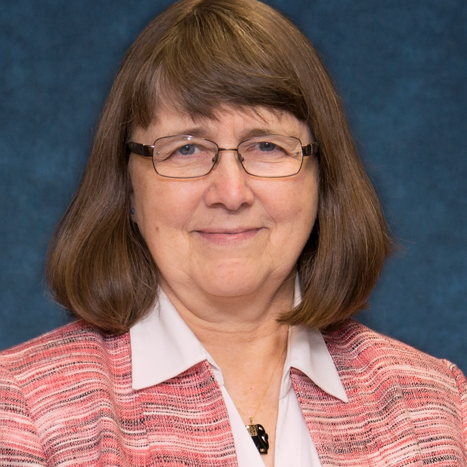Perspective: Getting Ahead Of Covid-19 Issues—Dying From Respiratory Failure Out Of The Hospital
April 01, 2020
Joanne Lynn
This blog was originally published in Health Affairs and is reprinted with permission.
Within the next few weeks, the US will experience a very large number of deaths from Covid-19. The evidence is now plain that these deaths will mostly be of individuals older than 60 years of age; many will be individuals past 80. Younger people already living with disabilities and illnesses associated with aging are also at risk.
I have been a geriatrician and hospice physician for many years, and I’ve been involved in disaster planning. I am alarmed that we are not yet thinking ahead. Specifically, we are not:
- Determining care preferences for people at high risk of dying from Covid-19, so we know whether they want to endure hospitalization and life on a ventilator if they get a bad case;
- Getting ready to support peaceful course to death in homes and nursing homes for those who otherwise face suffocation;
- Preparing for prompt and appropriate care of dead bodies; and
- Developing the ability to test large numbers for immunity, since they could return to work and caregiving.
I know our leaders are busy trying to catch up to today’s challenges, but they should be thinking ahead and preparing for these issues. Their delay in confronting them perpetuates the same problem we had in January, when it was already clear that this virus was so contagious that it would circle the globe and we failed to adequately prepare. We are way behind in dealing with today’s issues, but there is still time to get out ahead on these near-future issues.
Enabling People At High Risk To Make Treatment Decisions In Advance
Every one of us at high risk because of age or illness should be setting goals and making decisions about the desirability of hospitalization and ventilator support—yet no one is talking about making and using Covid-19 advance care plans. Every nursing home and assisted living facility should immediately help virtually all their residents set goals and make decisions about how they would like to be treated if they have a bad case of Covid-19. These advance care plans should be specific to the threat of Covid-19 in the context of the particular resident’s situation.
Covid-19 in older adults and seriously ill persons mostly kills by respiratory failure, progressing over a few hours or days from a sensation of breathlessness to a losing struggle to breathe. Only a minority of elderly persons who are put on ventilators survive to leave the hospital, and most have become more disabled from being very sick and mostly immobile. Older adults already living with eventually fatal illnesses and their families might make decisions to avoid all this and accept that a serious case of Covid-19 is likely the end of their lives.
But someone has to ask them. Someone has to inform elderly or seriously ill people or their surrogate decision makers, help them to understand their situation, and then document their decisions. Having the opportunity to make decisions ahead of becoming ill with Covid-19 is especially important for those who decide not to take the conventional pattern of going to the hospital and/or being put on a ventilator. These discussions are difficult. Clinicians may find the advice for Covid-19 conversations on Vital Talk to be helpful.
However, none of this is likely to happen broadly unless the Centers for Medicare and Medicaid Services and the Centers for Disease Control and Prevention guidelines start mentioning the urgency of these issues, and professional societies start reinforcing the message. Leaders on television and social media need to be willing to voice the merits of having these discussions and decisions now.
Nursing home and assisted living residents are at particular risk because we have no way to prevent outbreaks in facilities. This virus has about a five-day incubation period, during which an infected person has no symptoms but can still spread the virus. Visitors, staff, or new residents are bound to bring the virus into some facilities unknowingly. With so many residents who cannot cooperate fully with isolation due to dementia or delirium and the shortages of protective equipment for infection control, the virus is likely to spread. Thus, a focus on advance care planning for residents of nursing homes and assisted living centers is not just feasible but urgent.
Still, half our population of seriously ill or disabled elderly people are not in facilities; they are being cared for at home by family, friends, or neighbors. Therefore, families or care partners need to have the same conversations and make the same decisions. They need guidance and support, too. The same urgency to plan applies to elders being supported in private homes. Families and other caregivers will find helpful suggestions in the resources of The Conversation Project.
One painful aspect of these discussions is that hospitalization and ventilator use may become unavailable to older people if our facilities become overwhelmed. We don’t need to dwell on this aspect, but we do need to acknowledge that a decision to pursue fully aggressive medical treatment depends upon those elements continuing to be available.
Making Sure That People Dying Without Ventilator Support Are Reasonably Comfortable
A person whose care plan is to stay on site and not to use the hospital, or who has no option to get hospitalization, needs to be able to rely upon good symptom management for respiratory distress. Without treatment, respiratory distress is among the most anguishing ways to die. Good care requires supplemental oxygen and morphine (or another opioid).
Many nursing homes and assisted living centers will have had little experience with supporting people dying from respiratory failure. Hospice and palliative care practitioners will have the needed skills and experience, especially in knowing how to titrate morphine to relieve air hunger while keeping the possibility open that the person might survive. However, these clinicians need morphine, oxygen concentrators (a machine), personal protective equipment, and time at the bedside. They will be stretched to serve suddenly large numbers of infectious people dying of respiratory failure at home and in facilities. These clinicians need to be on the list of high-priority providers, and their services need to be acknowledged and valued by leadership.
Indeed, nursing homes and assisted living centers need to reach out to their local hospice programs and work together if their setting is hard hit. Only if clinicians can promise reliable symptom management can a high-risk patient choose to avoid hospitalization.
The Care Of Bereaved Families And Newly Dead Bodies
The rapid loss of a substantial number of older adults has no real precedent, and the situation bars many of the usual supportive behaviors and rituals. Many decedents will have had to die alone because family was barred from attending for fear of infection. Social distancing prevents final embraces and mutual consoling among family and friends. We can’t even gather in religious ceremonies. Supporting the bereaved will require new patterns, and we could start identifying helpful approaches.
Obviously, morticians, funeral directors, crematoria, and cemeteries will need to be prepared for a surge of deaths, including many occurring out of the hospital. Planning now could avert repeats of experiences in other countries, with families having to wait for days to have the body removed. Again, leaders should acknowledge and value these services and help arrange adequate workforce and supplies.
Valuing Immunity: The Benefits Of Serologic Testing
We will soon have a substantial number of people who have had their infection and recovered. Nearly all will have rid themselves of the virus within a month. But most will be uncertain as to whether they are immune because they never had a definitive diagnostic test, either because their illness was mild or because testing was unavailable. People who are immune become very valuable to the public. They can return to work, they can visit sick people, they can provide care—indeed, they can be the vanguard of a return toward normal. But they need to know that they are immune, as do their employers, patients, and family members.
This calls for development of and deployment of serologic testing, so we can know who is still susceptible and who is immune. We don’t yet know how long immunity will last, and the evidence in related viruses is that it wanes over a year or two. But in the current year, these people are especially valuable since they cannot be infected and cannot spread the virus (with ordinary hygiene). We need leaders to call for development of this testing, fund it, and make plans for deploying it, perhaps first to health care workers.
A Call To Action
The nation is watching the experience in Italy with some horror, but it is over there and not here. We are not yet honestly dealing with the likelihood that some aspects of their experience will be here, in at least some parts of the nation, in the next months.
Let’s get over our reticence. We will have many deaths. Many will be in nursing homes and assisted living centers and most will be among older people. When a person is likely to die if he or she gets this disease, we should be clear about what treatment the person wants. If the person is dying without ventilator support, he or she should have treatment to prevent feeling suffocation.
Families and friends should have ways to grieve. Bodies should be able to be removed and buried or cremated promptly and safely. And we should be ready to test for immunity within a month.
These things are foreseeable. Indeed, they are foreseen. It’s time for leaders to talk and to put plans in place. Let’s get ahead of this pandemic on these issues.
Altarum is a nonprofit organization that works with federal and state agencies and foundations to design and implement solutions to improve the health of individuals with fewer financial resources and populations disenfranchised by the health care system. We achieve measurable results by combining our expertise in public health and health care delivery with technology, workforce training and continuing education, applied research, and technical assistance. Our innovative solutions lead to better health for beneficiaries and better value for payers.
View Related
New Report on Reform Options for Long-Term Services and Supports (LTSS) in Minnesota Aims to Enhance Access and Explore New Funding Approaches for Older AdultsNursing Home Staffing Trends and the Covid-19 Pandemic
Altarum CEO Michael Monson Appointed Chair of Long-Term Quality Alliance (LTQA) Board of Directors

Perspective

Joanne Lynn - MD
Analyst, Eldercare Improvement
Areas of Expertise- Eldercare and Advanced Illness
- Long-Term Services and Supports
- Medicare
Dr. Joanne Lynn is a former geriatrician and hospice physician who is an expert in creating and advancing new models to expand long-term services and supports (LTSS) to a greater share of the aging population. Joanne is the author of hundreds of journal articles and books on LTSS policy, including MediCaring Communities, a blueprint for setting up, delivering, and funding LTSS services nationwide.